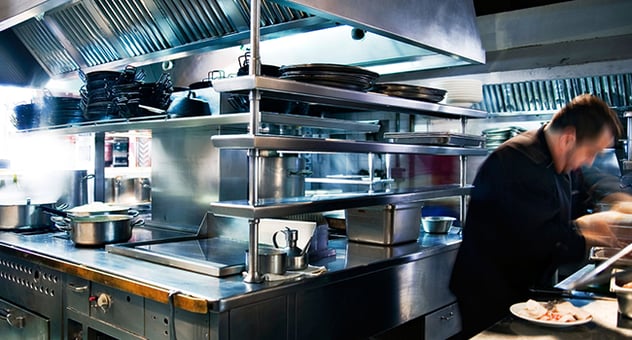Your staff’s job satisfaction directly contributes to the quality of service customers receive. But by nature, restaurant work is an intense, often grueling trade that requires enormous physical labor, almost superhuman speed and extreme mental fortitude. And that can do a number on staff morale. F&B employees experience elevated levels of burnout, and turnover rates are high compared to other industries.
However, unlike the managers in those other fields, you probably don’t have a HR team or manager to fall back on when employee satisfaction plummets. In fact, you’re probably just as overworked as the rest of your staff, especially if you’re struggling to pull a flailing business out of the red.
The big question, then, is: How do you become a confident restaurant manager and leader, that can get staff raring to go, and be respected by your team?

We’re not going to lie, it’s not going to be easy. But the good news is, you have more control over the situation than you think. By moderating your own behavior and offering a few small gestures of appreciation, you can build a team that will stick by you through thick and thin — or at least through dinner service!
1. Say thank-you
Appreciation goes a lot further than you’d think, studies show that employees take recognition to heart. In fact, for many, it may even be more valuable than a raise or other monetary perks. So say thank you when an employee picks up an extra shift or goes the extra mile to keep a customer happy. Your honest gratitude can go a long way in the hearts and minds of your team.
2. Keep a finger on the pulse
Of course, to offer genuine praise, you really need to know what’s going on behind the scenes. The best owners and managers have an almost preternatural ability to keep tabs on employees.
When two cooks are arguing, they know it. When an employee goes above and beyond, no one has to tell them. Don’t be the manager who hides out in the office all day. Be available during the busiest hours and give staff a hand when it counts. It’s the best way to keep an eye on your team.
3. Reward your team
Restaurant employees, like any team members, value their autonomy and need space to make decisions on their own. But that’s a tricky feat in the restaurant industry, where turnover rates regularly range between 60 to 70 percent.
However, there are some ways you can reward longevity and nurture team member development. For instance, offer incentives for superior performance, such as paid time off or gift cards. Reward employees with raises as they develop new skills, or offer a small bonus for a new idea or organizational system. Give your team agency over their career growth.
4. Be cool-headed and calm
There’s a reason behind the saying “If you can’t handle the heat, get out of the kitchen.” F&B is stressful, and we all feel the heat at some point. However, if you continually direct that stress at employees, you’re going to feel the impact as turnover rates skyrocket and employee morale goes down the drain.
Most employees at least try to be proficient. Frequent errors are often a sign that a new system needs to be implemented, such as hiring a new shift supervisor or using a better POS system, depending on the issue. Handle issues like these with a cool head and you'll avoid blowing up at your people.
5. Laugh a little
If the downside of the hospitality industry is the stress, then one of the upsides has got to be the people. High-pressure gigs like restaurant work are hugely bonding, and most employees have an incredible (albeit slightly warped) sense of humor.
Clowning around with your employees is one of the best ways to instill genuine loyalty and that “I want to work for you” feeling. It’s the kind of thing that keeps cooks following the same chef around from job to job and bartenders fixing the same cocktails year after year. Just keep it clean and good-natured — you don’t want an unfortunate joke to become a lawsuit.
6. Be a positive leader for your team
Trust is earned, not given. That’s true of any relationship, whether you’re talking about your spouse or the guy who delivers your baked goods. The relationship between employer and employee should ultimately be about mutual trust. Like it or not, as a leader, you’re the model for ideal employee behavior. If you want your waitstaff to maintain a sunny disposition, you can’t come into work in a bad mood.
If you want your team to work together, you can’t disappear into your office and lock the door. If you want your cooks to move orders like it’s the most important thing in the world, you’ll have to display the same passion.
The good news, however, is that by managing your own behavior, you can do a lot to shape employee conduct as well. And in an industry as demanding as restaurant management, that’s a pretty huge accomplishment!

Want to improve your restaurant managment skills? Start this lesson now with hospitality consultant, Mike Ganino.
 |
Warner Siebert is the Sr. Vice President of Sales & Marketing for CAKE, a fully-integrated restaurant platform by Sysco. Hailing from New York City by way of Baltimore, Warner began helping restaurants when he founded BuzzTable in 2011, which was acquired by Sysco in 2013 and rebranded as CAKE Guest Manager. |
You might also like: